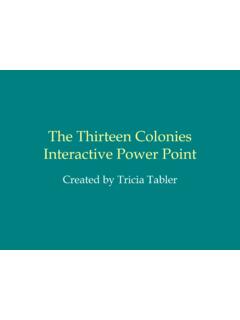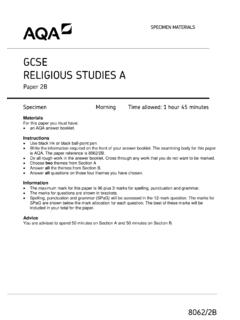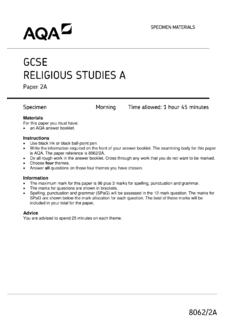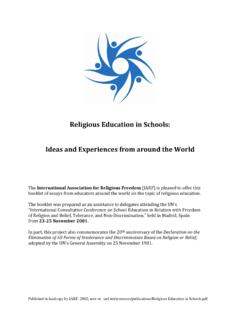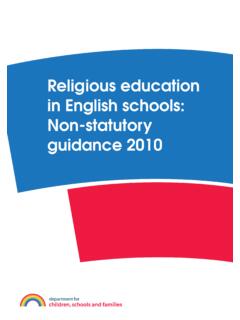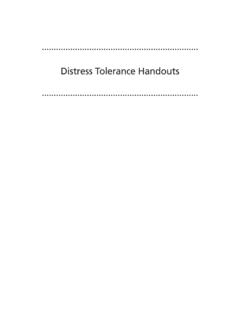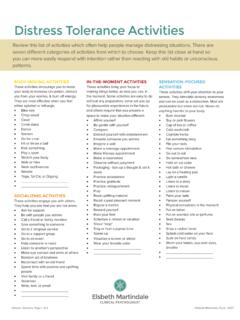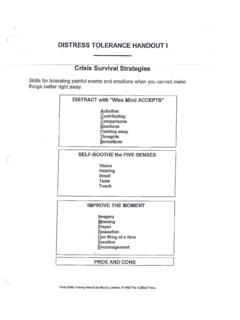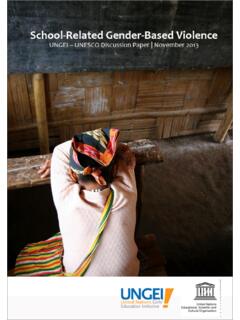Transcription of MINISTRY OF EDUCATION - NaCCA
1 MINISTRY OF EDUCATION . REPUBLIC OF GHANA. religious AND MORAL EDUCATION . CURRICULUM FOR PRIMARY SCHOOLS. (BASIC 1 - 6). SEPTEMBER 2019. NaCCA , MINISTRY of EDUCATION 2019. religious and Moral EDUCATION Curriculum for Primary Schools Enquiries and comments on this Curriculum should be addressed to: The Executive Secretary National Council for Curriculum and Assessment ( NaCCA ). MINISTRY of EDUCATION P. O. Box CT PM 77. Cantonments Accra Telephone: 0302909071, 0302909862. Email: Website: ii NaCCA , MINISTRY of EDUCATION FOREWORD. The new curriculum for Ghana's primary schools is standards-based, which is our demonstration of placing learning at the heart of every classroom and ensuring that every learner receives quality EDUCATION . Provision of accessible quality EDUCATION for all is non-negotiable if we are to meet the human capital needs of our country, required for accelerated sustainable national development. It is for this reason that the new curriculum sets out clearly the learning areas that need to be taught, how they should be taught and how they should be assessed.
2 It provides a set of core competencies and standards that learners are to know, understand and demonstrate as they progress through the curriculum from one content standard to the other and from one phase to the next. The curriculum and its related teachers' manual promote the use of inclusive and gender responsive pedagogy within the context of learning-centred teaching methods so that every learner can participate in every learning process and enjoy learning. The curriculum encourages the use of Information and Communication Technologies (ICTs) for teaching and learning ICTs as teaching and learning materials. The new curriculum has at its heart the acquisition of skills in the 4Rs of Reading, wRiting, aRithmetic and cReativity by all learners. It is expected that at any point of exit from a formal EDUCATION , all learners should be equipped with these foundational skills for life, which are also prerequisites for Ghana becoming a learning nation.
3 The graduates from the school system should become functional citizens in the 4Rs and lifelong learners. They should be digital literates, critical thinkers and problem solvers. The EDUCATION they receive through the study of the learning areas in the curriculum should enable them to collaborate and communicate well with others and be innovative. The graduates from Ghana's schools should be leaders with a high sense of national and global identity. The curriculum therefore provides a good opportunity in its design to develop individuals with the right skills and attitudes to lead the transformation of Ghana into an industrialised learning nation. For this reason, the MINISTRY of EDUCATION expects that learners, as a result of the new knowledge, skills and values they have acquired through the new curriculum, will show a new sense of identity as creative, honest and responsible citizens. These are our core values that underpin the identification and selection of the learning areas for this curriculum.
4 These core values serve as fundamental building blocks for developing into our learners the spirit of teamwork, respect, resilience and the commitment to achieving excellence. The MINISTRY endorses a quality learning experience as an entitlement for each of Ghana's school-going girl and boy; the curriculum has rightly focused on learning and learning progression. The MINISTRY has also endorsed accountability as a critical domain for effective workings of standards-based curriculum. More importantly the role of the teacher is to make this curriculum work for the intended purpose - to inculcate in learners the core competencies and values and to make learning happen; improve learning outcomes and the support that teachers need is duly recognised and endorsed by my MINISTRY . The MINISTRY will support the implementation of the curriculum to include capacity development of all teachers in the new curriculum. Teachers matter in the development and delivery of the standards-based curriculum and we will continue to support our teachers on this journey that we have started together to put learning at the centre of what we do best; teach!
5 I thank all those who have contributed their time and expertise to the development of this curriculum for primary schools in Ghana. Dr. Matthew Opoku Prempeh (MP). The Honourable Minister of EDUCATION iii NaCCA , MINISTRY of EDUCATION TABLE OF CONTENTS. PHILOSOPHY .. vi GENERAL AIM .. vii CORE COMPETENCIES .. viii ORGANISATION OF THE BASIC 1 ..1. STRAND 1: GOD, HIS CREATION AND ATTRIBUTES ..2. STRAND 3: religious LEADERS ..4. STRAND 4: THE FAMILY AND COMMUNITY ..5. BASIC 2 ..6. STRAND 1: GOD, HIS CREATION AND ATTRIBUTES ..7. STRAND 2: religious PRACTICES AND THEIR MORAL IMPLICATIONS ..9. STRAND 3: religious LEADERS ..11. STRAND 4: THE FAMILY AND COMMUNITY ..12. BASIC 3 ..14. STRAND 1: GOD, HIS CREATION AND ATTRIBUTES ..15. TRAND 2: religious PRACTICES AND THEIR MORAL IMPLICATIONS ..18. STRAND 3: religious LEADERS ..20. STRAND 4: THE FAMILY AND COMMUNITY ..21. BASIC 4 ..23. STRAND 1: GOD, HIS CREATION AND ATTRIBUTES ..24. STRAND 2: religious PRACTICES AND THEIR MORAL IMPLICATIONS.
6 30. STRAND 5: THE FAMILY, AUTHORITY AND OBEDIENCE ..31. BASIC 5 ..33. STRAND 1: GOD, HIS CREATION AND ATTRIBUTES ..34. iv NaCCA , MINISTRY of EDUCATION STRAND 2: religious PRACTICES AND THEIR MORAL IMPLICATIONS ..38. STRAND 3: religious LEADERS ..40. STRAND 4: THE FAMILY AND COMMITMENT ..41. STRAND 5: THE FAMILY, AUTHORITY AND OBEDIENCE ..43. BASIC 6 ..45. STRAND 1: GOD, HIS CREATION AND ATTRIBUTES ..46. STRAND 2: religious PRACTICES AND THEIR MORAL IMPLICATIONS ..49. STRAND 3: religious LEADERS ..52. STRAND 4: THE FAMILY AND COMMUNITY ..53. STRAND 5: THE FAMILY, AUTHORITY AND OBEDIENCE ..54. STRAND 5: THE FAMILY, AUTHORITY AND OBEDIENCE ..56. v NaCCA , MINISTRY of EDUCATION RATIONALE. The issue of morality and religion has engaged human attention over the centuries. This is because of their effects on the co-existence of human beings with one another and the world they live in and ideas concerning their relationship with forces beyond the known world.
7 religious and Moral EDUCATION ' is a vital and indispensable part of human growth and development in the Ghanaian society. The subject reinforces the informal religious and moral training young people acquire from their homes and communities. The nation is confronted with major moral issues including corruption, poor attitude to the environment and uncritical following of certain foreign values and cultures. EDUCATION must make learners aware of the dangers these pose to themselves as individuals and the nation as a whole and make them to acquire values and attitudes that would address these challenges. Many homes and communities may be unable to provide this type of training adequately due to demands of modern environment. It therefore becomes the task of the school to provide this type of EDUCATION in order to help learners to become morally responsible and patriotic citizens. Furthermore, the spread of EDUCATION across all sectors of the Ghanaian society, and the changes in the way of life of people as a result of EDUCATION , population growth, and contacts with the outside world, tend to introduce all manner of both positive and negative influences.
8 In general, young people readily and unconsciously assimilate all types of influences (good or bad), if they do not have proper guidance. It is therefore important that society provides them with a type of EDUCATION that will make them acquire sound religious and moral principles; and also develop appropriate attitudes and values that will help them to make good choices and decisions in their adulthood for the good society. PHILOSOPHY. The learning and teaching of religious and Moral EDUCATION reflect the belief that irrespective of the diverse needs of learners in Ghana's classrooms, each can be nurtured into honest, creative and responsible citizen. Teaching Philosophy The teaching of religious and Moral EDUCATION ( ) should be learner-centred rather than teacher-centred. There is a Chinese proverb that states I hear, I. forget; I see and I remember; and I do and I understand. This is interpreted to mean that when learners are fully involved in teaching and learning processes, they tend to develop great interest and subsequently contribute actively to lessons.
9 In the same vein, it is expected that the teaching and learning of religious and Moral EDUCATION would be participatory, and lessons not be turned into preaching sessions. Learners would become passive learners when religious and Moral EDUCATION teachers attempt to impart every information solely by themselves, and this may not encourage effective teaching and learning. Teaching resources play key roles in teaching and learning processes. Without them, learners are likely to find it difficult to understand various themes and concepts (topics) they study. Teaching resources such as charts, real objects and drawings help to make lessons interesting and practical. The teacher vi NaCCA , MINISTRY of EDUCATION should therefore be resourceful and be able to find the relevant teaching materials that may be needed for the lessons. It will be highly essential for teachers to use audio-visual resources such as films and videos in their lessons for learners to acquire the right knowledge, values, attitudes and skills needed.
10 They will also acquire some language skills and other core competencies from the topics they study and this will facilitate their learning of religious and Moral EDUCATION and other subjects on the school timetable. In addition, the teacher is expected to relate the various topics to the practical situations in their daily lives. Learning Philosophy The best way of learning religious and Moral EDUCATION is through practical activities like demonstrations, role plays, recitals, games, group work and visiting important religious and historic sites. There should be more demonstrations throughout the lessons. Children can get a clearer picture of lessons and store the facts in memory and practice when they are encouraged to take active part in the lessons that involve demonstrations and other practical activities. In educational principles, the child's GENERIC SKILLS are fully developed only when enough demonstrations and activities are undertaken.


